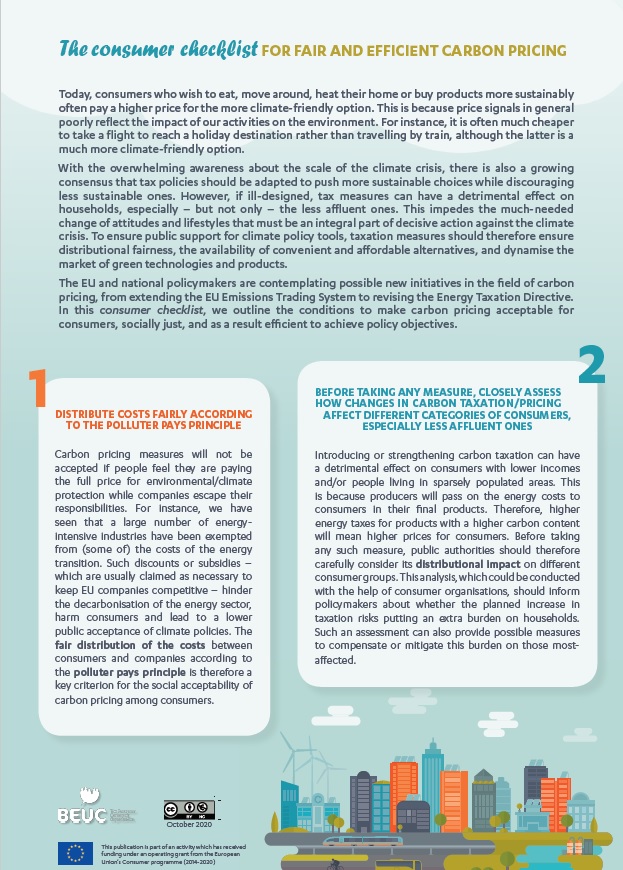Fairly apply carbon pricing in EU climate action, consumer groups say
Fairly apply carbon pricing in EU climate action, consumer groups say
BEUC NEWS - 30.10.2020
Carbon pricing is taking an increasingly prominent position in climate action. Consumer groups have issued a set of principles to help decision-makers ensure this pricing is applied fairly.
“In our transition to climate neutrality, carbon pricing will continue to play a key role”, the European Commission said in September. One option it is considering is to extend the EU’s ‘Emissions Trading Systems’ (ETS) to road transport and buildings.
Together with other NGOs, we already wrote in December 2019 that such an action would be socially regressive. It would transfer the burden to, and trap, consumers – who would for instance pay higher prices for petrol – without pushing industry enough to provide environmentally friendly alternatives. And this easily impedes or erodes public support for climate action.
And yet price signals are a core component of making sustainable activities more affordable and accessible. Presently these signals poorly reflect the impact of our activities on the environment. This often makes the sustainable choice often the expensive one. Changing this requires applying the polluter-pays principle and doing so with a focus on fairness – that is, mitigating its distributional effects.
By doing so, EU decision-makers can help make the sustainable choice the easier choice and boost the market for such products and services (sustainable finance, for instance). BEUC has issued seven principles that should guide decision-makers in this regard:
- Distribute costs fairly.
- Assess how (changes in) carbon pricing affects different socio-economic groups, before taking any measure.
- Be transparent about the use of revenues.
- Earmark revenues to alleviate any burden of carbon pricing measures and/or provide alternatives to unsustainable lifestyles (such as investments in public transport, recharging infrastructure).
- Make carbon pricing a complement to, not a substitute for, sector-specific climate policies (such as higher CO2 emission targets for cars).
- Do not simply displace CO2 emissions to other parts of the world.
- Ensure consistency across all pricing measures.
For an example of fairness in carbon pricing, do also read our article on how this might play out in the transport sector.
The European Consumer Organisation
Europäischer Verbraucherverband
Bureau Européen des Unions de Consommateurs


